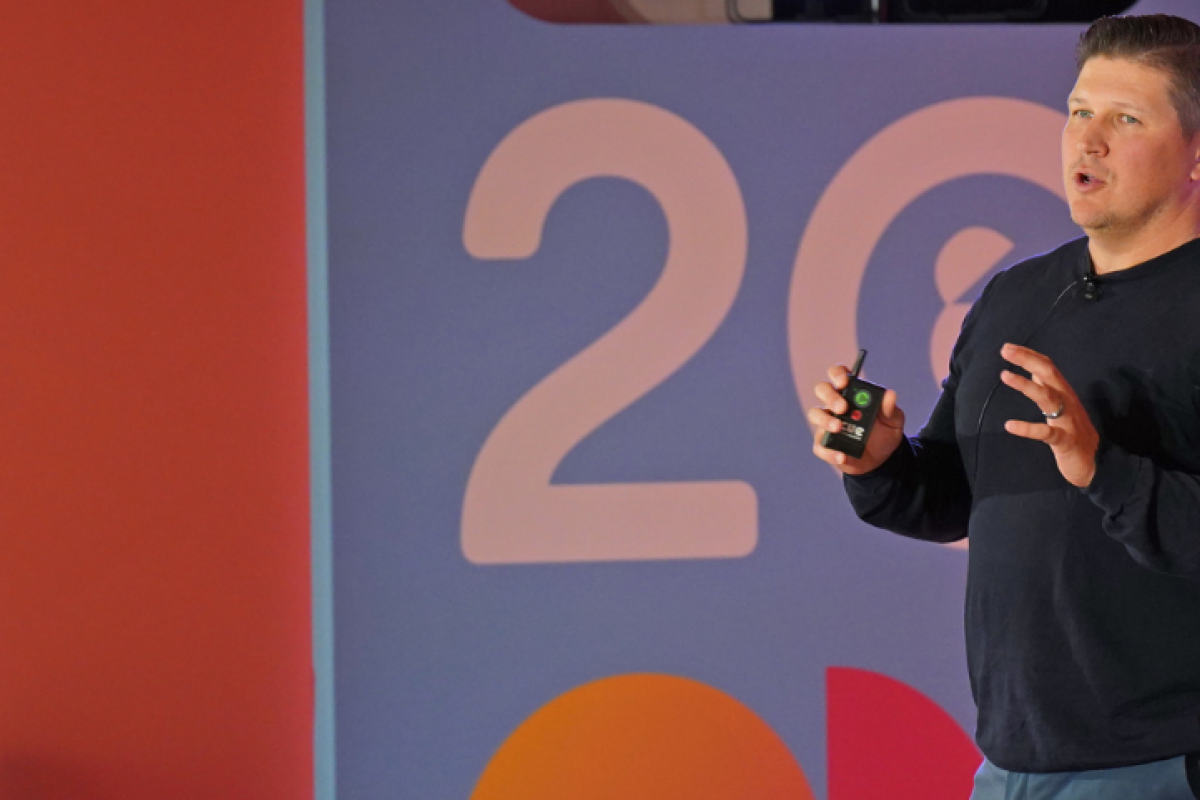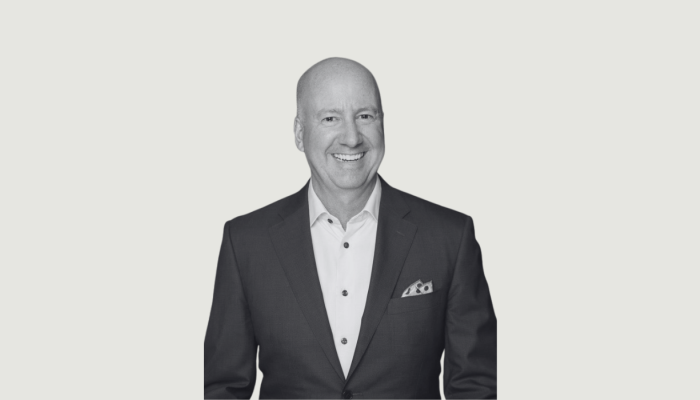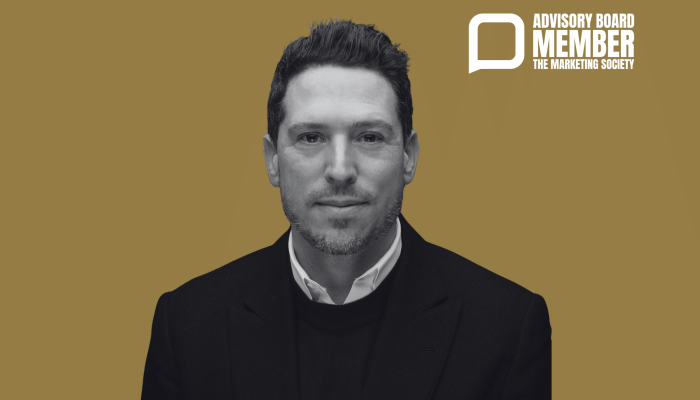Following The Marketing Society New York annual Changemakers Conference at the Scale Up Lounge at Advertising Week New York, on October 10 - Mike DaRe (MD), President of Smarts US and Eleanor Lloyd Malcolm (ELM), Managing Director of Freemavens came together to discuss cultural endurance for impact.

Let’s start with an icebreaker, during Mike’s talk on Cultural Endurance, he mentioned brands as personas alongside icons like Muhammad Ali, Vivienne Westwood, and David Bowie.
Who would your agency brand personality be?
Eleanor Lloyd Malcolm: At Freemavens, we strive to be pioneers in the world of human understanding and help our clients get closer to their customers. Our personality has a few different facets to it, and I’d say it’s an exciting partnership between the enigmatic physicist and musician, Brain Cox, and the GOAT herself, Simon Biles.
Brian is endlessly curious about how the world works. He is creative in how he solves hard problems and has a unique ability to articulate his thinking simply.
Simone Biles is a spinning ball of youthful energy and is both down to earth and playful. She is unafraid to share her voice to help others. She is determined and focused and always bringing her A game.
Mike DaRe: Our ambition at Smarts is to constantly be the most reliable agency on our brand’s roster and to always show up with edgy and creative thinking. So, I would say we combine the reliability of Tom Hanks – you know what to expect, you’re in a safe pair of hands. You know you’re getting a great film if his face is on it. On the more creative side, we hope in working with us you’re witnessing those who push boundaries and encourage bravery within creativity. We live at the forefront of culture and always like to generate an element of surprise, like Charli xcx or Harry Styles.
We spent a lot of time talking about the qualitative insights at the recent talk, but from a data perspective, what kind of quantitative insights did you see that made brands with cultural endurance effective?
ELM: The Cultural Endurance Measurement model harnesses millions of consumer and brand artifacts live in culture to benchmark a brand's Cultural Endurance. We measure a brand against 5 core cultural metrics: Values, Presence, Interest, Buzz and Advocacy. Through our deep research, our advanced data science modeling has proven a strong link between high metric scores and positive revenue performance.
A brand’s Cultural Endurance score is only the beginning of the journey, it is a diagnostics tool to understand where a brand is strong and where it needs to optimize to win in culture. Together, Freemavens and Smarts have the unique ability to help clients assess, build and activate a culturally endurant brand.
Opinions on sustainability or corporate social responsibility can be divisive. Now many consumers make their buying decisions based on how much brands are giving back. With the current climate, have you seen more brands break away from this strategy or are they being savvier in how they integrate these ideas into their overall personas?
Few people would argue that sustainability is not important, and they expect brands to “be good,” however in a cost sensitive environment, it’s rarely people’s first decision making criteria. Being “good” can be implicit or explicit and as a brand this might depend on who you are, the category you’re in, and the journey you are on to being sustainable. Companies like Patagonia, Stella McCartney, Toni’s, and Oatly are implicitly good and lead with that message in culture. Other brands become implicitly sustainable. Even in my own research, I was surprised to learn that Mini Cooper is one of the most sustainable cars in the market! It’s not a persona they overly publicize, but they give back whilst maintaining their core brand message of adventure and fun.
MD: So interesting about Mini Cooper and their strategy. Doing good has become table stakes for many consumers, so in our experience it needs to be implicit in who and what you are as a brand and talking about it needs to come with a certain level of humility. Greenwashing (or washing of any kind) is one of the worst offenses a brand can make. So, in the best way, the trend has become brands doing things outside of the spotlight that makes them inherently good and then, when the moment culturally presents itself, to showcase those virtues to the outside world. It has to be in that order. Brands who claim to be sustainable, progressive, sympathetic to a cause who are found out in any way not to be, suffer far more than brands who don’t lead with those messages. Consumers have spoken and what they have said is, “if you do the right thing, we’ll find you and stay loyal.”
It can be hard to stay away from the whirling dervish that is culture and the tendency to jump on the latest trends to stay relevant. Are there quick things that marketers can use as their barometer on whether or not to make content for the sake of making content?
ELM: The key principles to any activation is to ask yourself: is it relevant to the people I'm talking to, is it an authentic thing for my brand to be doing, and is my brand doing it in a fresh way.
Too many brands jump on the bandwagon of cultural trends but will get called out or lost in the noise if they don’t follow the basic principles.
Brands who are constantly listening to and connecting with the audiences they serve and then respond meaningfully and consistently are those that win over time. In our fast-moving, customer savvy world, that’s not a once-a-year activity, it’s a consistent conversation.
MD: Ditto!
The easiest way to avoid the trappings of chasing culture is to do the hard work of getting to know yourself as a brand. Brands who understand their own tone of voice rarely get lost in the noise or get caught chasing a trend into some far-reaching corner of the internet.
It’s hard work because it can and should take time to establish and disseminate across all the different touchpoints in which the brand communicates. Once a brand knows who it is, you can plan to be spontaneous. It may sound strange, but yes, you can plan spontaneity. You can build cultural calendars against things that are likely to happen like major events. You can act during moments where you know, “What but not when” and equally at moments when you know the, “When but not the what”.
Are there newer brands out there who you think will stand the test of time and trends?
ELM: It’s the brands that manage to stay culturally relevant year after year by staying true to their core values, but evolve how they show up in culture to stay fresh that are the most interesting to me. I think the mainstays like Louis Vuitton, Land Rover, or Corona will always be relevant.
Over the next ten years, personal care, wellness and fitness brands will continue to grow. Rihanna’s brand, Fenty, broke category roles and captured an underserved audience with authenticity. Healthcare brand Zoe has nailed this trend by balancing cultural narratives of modern science with holistic health. Few brands have managed to blend the two well. The rapid rise of secondhand platforms is also fascinating. Brands such as Reluxe and Depop will prevail as consumers seek to spend less and lower their consumption footprint in fashion whilst still getting a fashion hit.
MD: I love newer brands like Liquid Death, Oatly (like Elle mentioned), and Elf Cosmetics have shown a deep commitment to their tone of voice and place in culture. Their consistency has become a strength that allows them to show up at various moments with a clear perspective and authenticity without having to chase trends.
Thanks to MSQ for bringing us this Q&A
Published 27 November 2024



